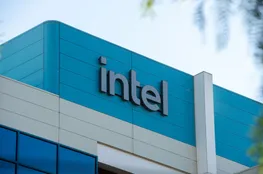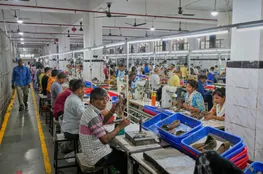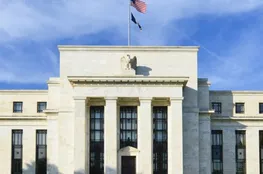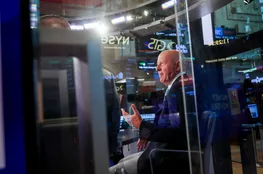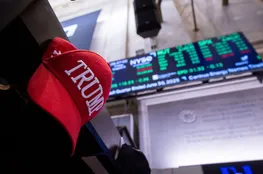Xabi Alonso’s appointment as Real Madrid’s new first-team head coach makes so much sense due to his deep connection at the Bernabeu. The 43-year-old former midfielder is returning to a club he knows well. As a Madrid player from 2009-14, he made 236 appearances and helped the Spanish side win the Champions League, La Liga and two Copas del Rey.
Advertisement Alonso also spent a year working as a youth coach in Madrid’s La Fabrica academy as part of a carefully thought-out career plan, with the possibility of returning to the club for the first-team job always present. The 114-time Spain international’s political skills and charisma also helped as he twice left the Bernabeu, as player and then coach, while still remaining on good terms with the club’s influential president, Florentino Perez . That familiarity with how things work at Madrid, on and off the pitch, should help Alonso settle quickly into his new role, with a first challenge coming when the Club World Cup kicks off in the United States in mid-June.
This is how his relationship with the club has developed over the years. Alonso first joined Madrid from Liverpool for €35million (£29m/$39m at current exchange rates) in summer 2009, just after Perez returned for his second spell as their president. He was one of several new stars who joined in that transfer window, including galacticos Cristiano Ronaldo, Karim Benzema and Kaka. The idea was for Madrid to compete against Pep Guardiola’s all-conquering Barcelona side. Alonso was a key figure in midfield as a team managed by Jose Mourinho beat Barca, their arch-rivals, in a fiery Copa del Rey final in April 2011 and then claimed the 2011-12 La Liga title with a record 100 points and 121 goals (Barcelona equalled that points total the following season). Yet Mourinho’s attritional style, especially in games against Guardiola’s side, did not please everyone at Madrid. Many were aghast at his scathing attacks on referees and UEFA, European football’s governing body, while poking then-Barca assistant Tito Vilanova in the eye during an August 2011 Clasico was seen by some as going against the capital-city club’s traditional values of dignity and class. Senior figures in the Bernabeu dressing room, including Iker Casillas and Sergio Ramos, rebelled against their coach, but Alonso and his former Liverpool colleague Alvaro Arbeloa remained loyal ‘soldiers’ under Mourinho through it all. “As a professional, I’m learning a lot from Mourinho,” Alonso told Basque outlet ETB in November 2012, as reported by El Mundo , at the height of these tensions. “He’s very demanding and careful with all the details. People only know the face he shows externally. I know the other side of him, from inside.”
Alonso was also a key member of the 2013-14 Madrid team, as the more diplomatic and reasonable approach of Mourinho’s Italian replacement Carlo Ancelotti healed those dressing-room divisions. Although he missed the Champions final victory over Atletico Madrid in Lisbon due to suspension, Alonso famously raced down the sideline in his suit to celebrate Gareth Bale’s crucial extra-time goal, as Madrid lifted the long-awaited Decima — their 10th European Cup/Champions League. Alonso, then 32, had signed a new contract the previous January. But in late August he made a shock exit to join Bayern Munich. “These have been five marvellous years,” Alonso said at his Bernabeu farewell . “Leaving Real Madrid has been the most difficult decision of my life. But you must know when to say goodbye. A new cycle is starting. To be at my best, I need a change.” Some at Madrid found the departure, to join Guardiola’s squad in Munich, difficult to understand. Perez explained to club socios or members at the time that Alonso asked him “as a favour” to let him leave. Ancelotti said in his 2016 book ‘Quiet Leadership: winning hearts, minds and matches’ that it was “the president’s decision” to accept Bayern’s €10million (£8.4m/$11.3m at current exchange rates) offer. Whatever really happened, Alonso’s relationship with the centre of power at the Bernabeu was not damaged. Twelve months after retiring as a player in summer 2017, Alonso took his first steps in coaching with a role at Madrid’s youth academy. His Infantil A (Under-14s) team won 22 and drew one of their first 23 games to easily top their league in his first season. Even at Madrid, whose stature means they attract the very best local youngsters, it was a standout achievement.
View this post on Instagram A post shared by Xabi Alonso (@xabialonso) When the legendary Madrid striker Raul moved from coaching Madrid’s under-18s to take over their Castilla reserve side, Alonso was earmarked for that vacancy. But instead he accepted an offer to return to Real Sociedad, where he started his playing career in his native Basque region of Spain, to coach their Juvenil A (Under-18) team. The past decade has seen others who had previously played and/or coached at Madrid quickly find themselves overwhelmed after being appointed as their first-team coach. Although neither Rafa Benitez nor Julen Lopetegui had Alonso’s charisma or status from their playing careers, both struggled with the media and the political elements of the job. A big challenge for any Madrid coach during Perez’s presidency is to publicly defend the club against perceived enemies all around — in the media, at La Liga, UEFA and even the Ballon d’Or organisers . Those who know Alonso say he can handle that aspect of his new role. He is unlikely to follow Mourinho’s line of fanning flames, instead showing more of Ancelotti’s charm in attempting to dampen down fires. “Xabi’s style is not to be controversial,” says someone who has known him since he played for Real Sociedad. “He’s matured since then,” said another source close to former Madrid team-mates, when reminded of the turmoil of the Mourinho era. “Intellect” is a word that often comes up when discussing Alonso — both from those who have maintained excellent relationships with him, and those for whom their time working together ended awkwardly. That intelligence can be seen in how Alonso’s various teams have played, how he relates to players, and also how he maintained his relationship with Madrid so he emerged as the only realistic candidate to succeed Ancelotti. It also gives him every chance of success in one of the most difficult and pressurised coaching jobs in world football .”
(Top photo: Alonso playing for Madrid in 2011 by Elisa Estrada/Real Madrid via Getty Images)



